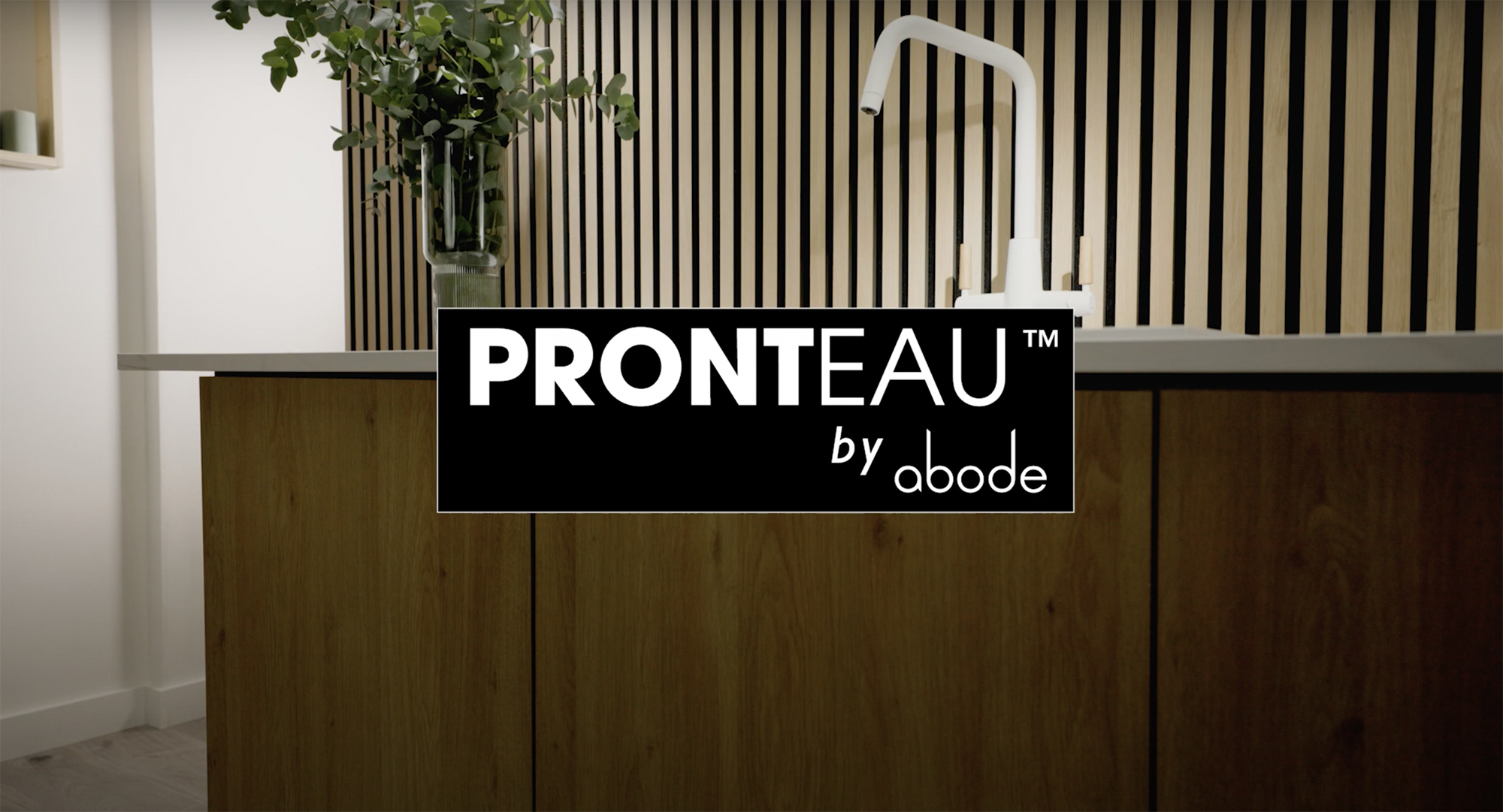Reducing energy use and keeping food fresher for longer isn’t a trend, it’s a necessity in the current climate and is integral to fridge freezer choice
The journey towards living more sustainably, reducing both energy use and food wastage, has been a long and winding road. But with a background of spiralling household fuel bills and inflation driving grocery prices, it is now playing a far greater role in consumer choice of refrigeration.
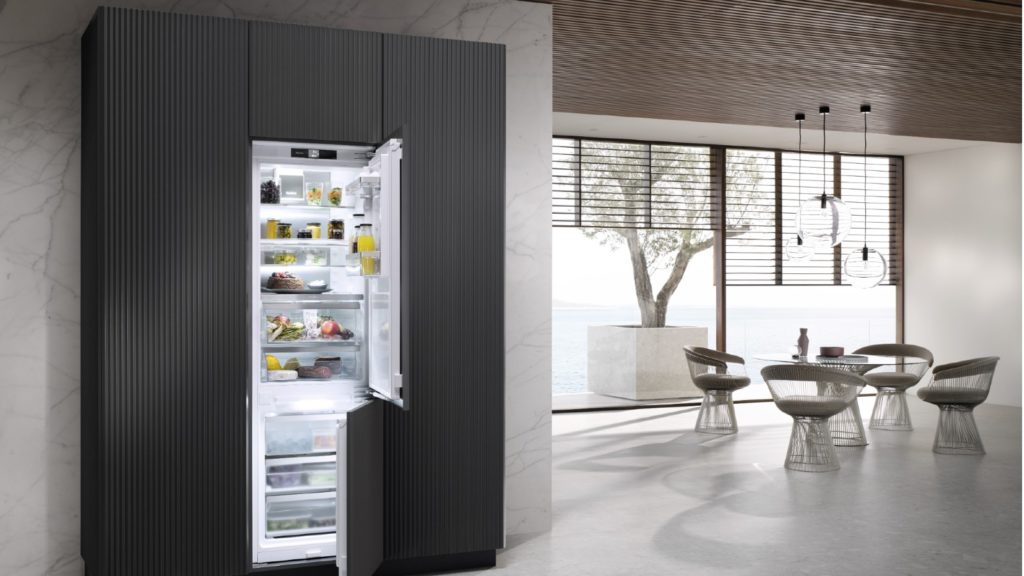
Top-of-the-range built-in refrigeration KFN 7795, from Miele, features PerfectFresh Pro with a fine mist to preserve food in the crisper drawer for up to five times longer. It also boasts DynaCool even cooling distribution
Market product manager at Fisher & Paykel Jo Jackson comments: “Historically, consumers of premium appliances have been looking for a number of elements that will fit around their lifestyle before sustainability enters the hierarchy. At least that was the case until very recently.
Sponsored Video
“This time, last year, saving money on energy bills through sustainable practices might not have been the priority that it is today. But it is unquestionably on everyone’s minds.”
Minimising energy
Manufacturers have worked hard to deliver refrigeration which minimises energy use, reducing costs for consumers while helping protect resources, to deliver appliances with best in class performance.
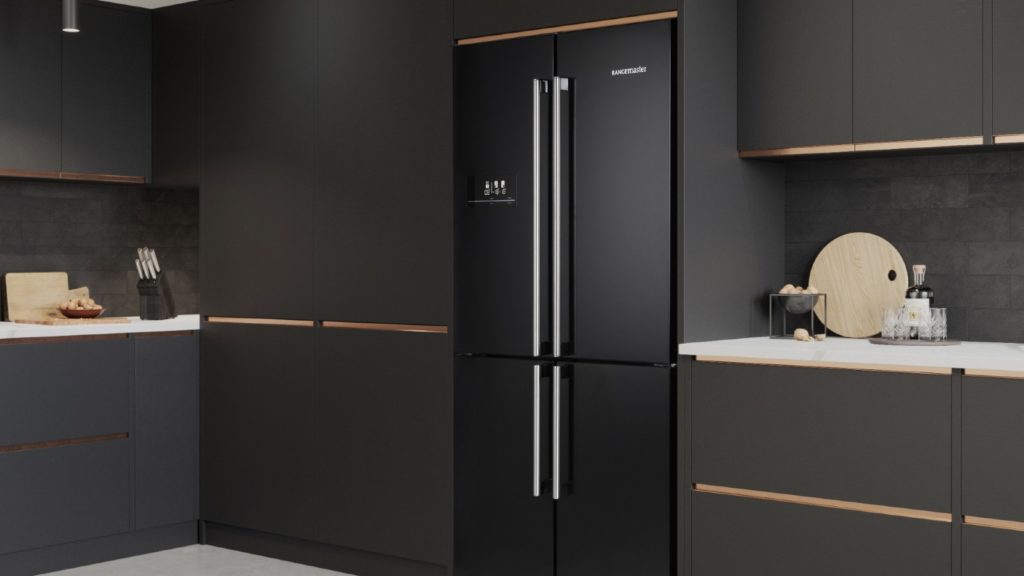
All Rangemaster American-style and French-door fridge-freezer collections have been upgraded to improve energy efficiency and reduce running costs. The SXS, SXS Deluxe and DXD models boast LED spotlights and a metal panel for the back wall.
Rangemaster recently upgraded its range of American and French-style door refrigeration models to enhance energy efficiency and reportedly reduce their running costs by 12%.
Manufacturers have sought to use the latest recycled and recyclable materials in refrigeration, to reduce energy efficiency in their manufacture and operation.
Bosch showcased a fridge freezer at IFA 2022 which features 27% recycled plastic and reduces carbon emissions by 33%.
Whereas Liebherr introduced BluRox insulation, which uses a vacuum and ground lava rock insulation instead of conventional foam, to offer lower thermal conductivity and therefore higher energy efficiency rating.
National sales manager of Liebherr Matt Jinks explains: “We have recently introduced to the market our largest range of A-rated appliances with freshness components, which is a significant milestone for the company.
“We’re proud to offer our customers this type of technology because we know it will benefit households in numerous ways, from improved sustainability and reduced waste to better economic efficiency.
“The appliances also operate with a low noise level, benefit from a long lifetime and have a larger capacity for produce with optimum power output, which are all great unique selling points for retailers.”
He continues: “Most recently, we are very proud to announce the launch of BluRoX, the world’s first freezer collection to include models with recyclable vacuum perlite technology, which sets a new standard for energy-efficient insulation. This is a great example of how companies can use product innovations that contribute to improved efficiency, and therefore lower costs and improve sustainability in the long term.”
Optimising storage
However, kitchens manager of Miele GB Tom Hopper adds: “Sustainability isn’t just focus on energy efficiency ratings but also looks at how particular models can help to reduce food waste.”
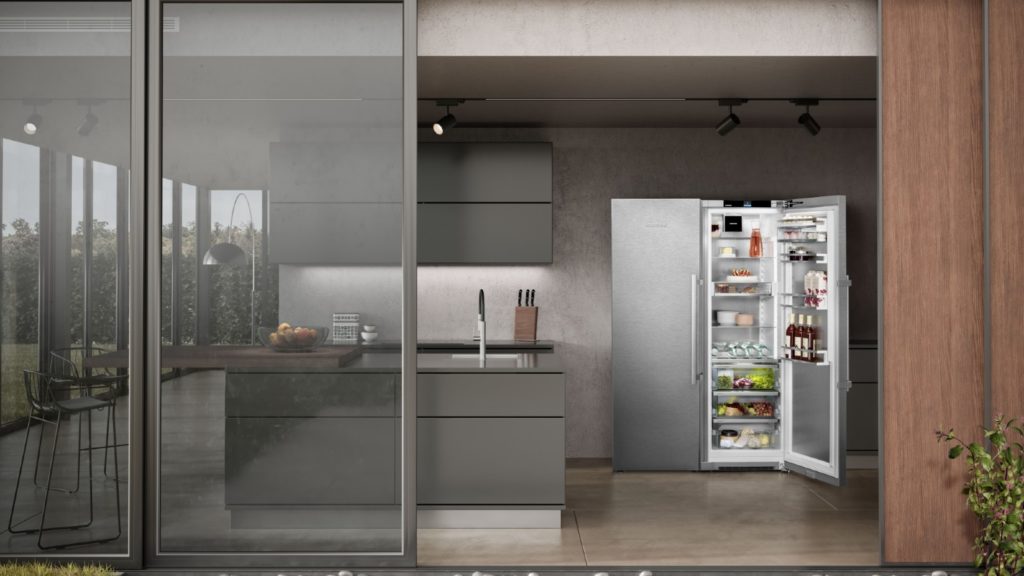
The Peak series of refrigeration, from Liebherr, features BioFresh Professional with HydroBreeze, which creates a visible mist in the crisper drawer to keep fruit and vegetables fresher for longer
Optimising storage to keep food fresher for longer was a focus of appliance manufacturers pre-COVID, but the cost-of-living crisis means it has become more essential in refrigeration choice.
Group marketing manager for Siemens Gaelle Thibaud explains: “Making food last longer isn’t a trend, it’s a necessity.”
Refrigeration manufacturers have worked hard to develop technology which preserves food for longer.
Adding to reduced temperature zones to store meat and fish and humidity controlled drawers, has been the introduction of three coloured lighting in Beko HarvestFresh technology which mimics daylight to preserve nutrients.
Most recently, adding to the variety of preservation technology has been the introduction of a cold mist to prolong the life of fruit and vegetables in selected Miele and Liebherr refrigeration.
Miele GB’s kitchens manager Tom Hopper comments its top-of-the-range KFN 7795 D model features this PerfectFresh Active technology “which spritzes a fine mist waterfall onto the contents of the crisper drawer to keep produce fresh for up to five times’ longer.”
Artificial Intelligence
Of course, at the pinnacle of food preservation and also energy use is the adoption of smart technology, such as Artificial Intelligence.
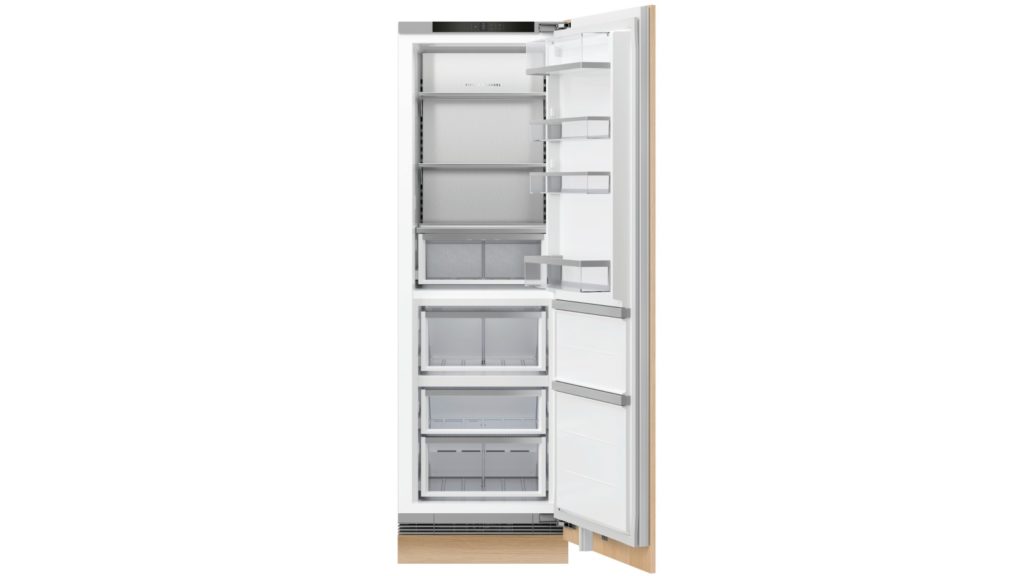
Measuring 600mm wide, the Fisher & Paykel Integrated Dual Zone Refrigerator has two independent food zones, with adjustable temperatures, and boasts ActiveCare to adjust temperature, air flow and humidity
Jo Jackson of Fisher & Paykel continues: “Our newest fridge freezers incorporate Fisher & Paykels’s humidity control system – ActiveSmart food care. ActiveSmart anticipates future use by sensing environmental conditions and understanding how you use your fridge.
“This means Fisher & Paykel can analyse and adjust the temperature, airflow and humidity accordingly to deliver optimal results.”
And at IFA 2022, Haier introduced its Cube 90 Series 7 Pro and FD 90 Series Pro refrigeration which adjusts the internal refrigeration temperature according to the heat of the room or if expecting a grocery load.
Greater capacity
And grocery loads have increased in size, given the continuing move towards entertaining and dining at home, perhaps to save money in the current climate, creating requirements for larger capacity refrigeration.
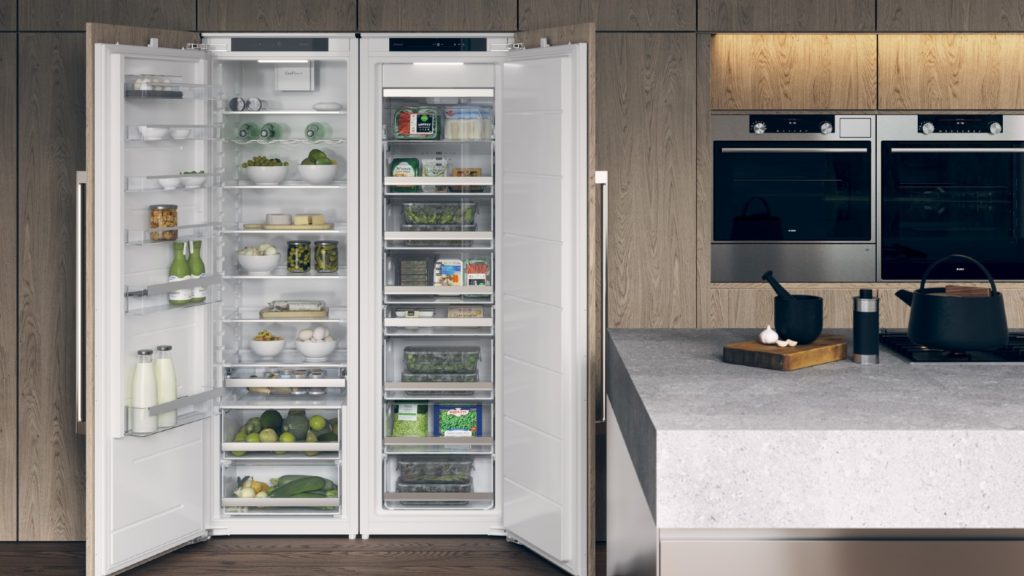
Asko has introduced a trio of cooling appliances includig the Asko Refrigerator (R31831I), Refrigerator Freezer (RF31831I) and Freezer (FN31831I). Using sensor technology, the refrigeration appliances adjust operation to the user’s habits or behaviour.
Unsurprisingly, then, the focus is on American style side-by-side refrigeration, as well as column fridges and freezers.
However, this has not been at the expense of dominating the kitchen space, as improved insulation provides greater internal storage in the same footprint, and consumers also seek concealed refrigeration.
Julia Steadman, commercial director of interior design studio Brandt Design, gives a front-line retail perspective: “Given that we are spending more time at home, food storage and management has become a key part of kitchen planning alongside optimising dining and entertaining areas, so consumers are looking for discreet but generous options for fridge freezers.”
Tom Hopper of Miele GB says this is reflected in his company’s sales: “We have seen fantastic growth in built-in – despite some supply challenges.”
And market product manager for Fisher & Paykel Jo Jackson is even more emphatic about built-in refrigeration sales, adding: “We have seen huge, triple-digit growth this year for all built-in refrigeration, but particularly for our CoolDrawer and Column models.”
It’s no surprise then, Liebherr recently introduced its Fully Integrated series of in-column refrigeration, and Bertazzoni also launched a new column cooling collection in 2021.
Most recently Asko has also introduced a trio of cooling appliances to its existing built-in cooking, laundry and wine cooling.
The overall kitchen design and specification market may be challenging, making it more important for retailers to focus on sustainable refrigeration which offers savings to consumers.
Gaelle Thibaud of Siemens concludes: “Nothing is more prominent right now than the need to be more energy efficient in the face of both the fuel crisis and rising living costs.
“These aren’t likely to change any time soon and are coupled with the fact that we must all live more eco-friendly lives, not just for now but always.”
